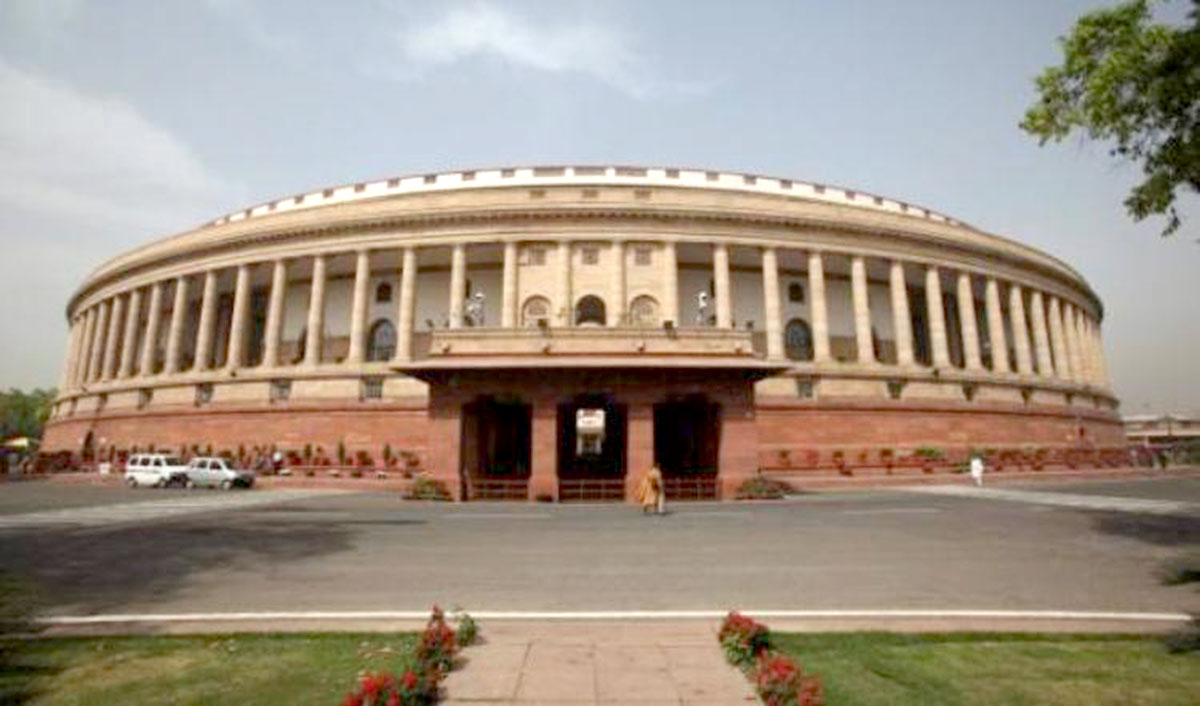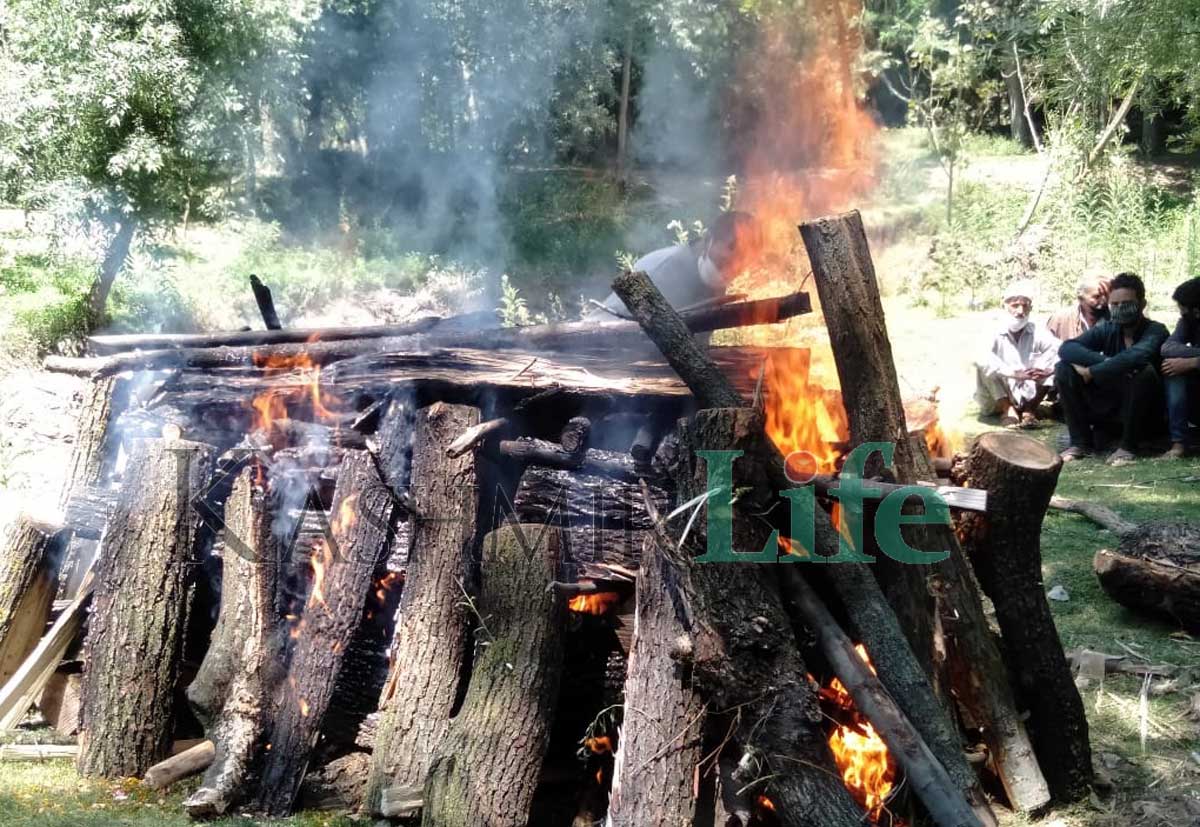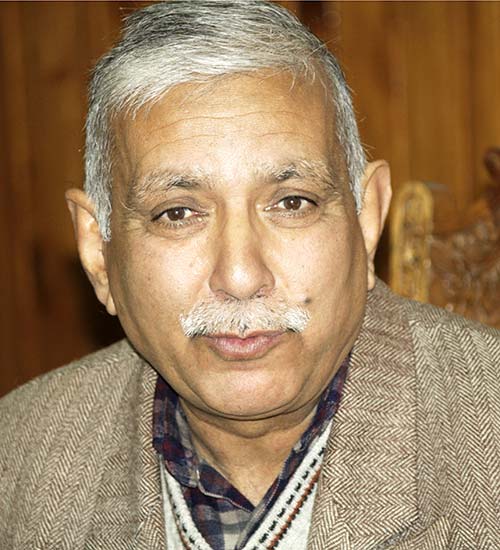by Prof (Dr) S M Afzal Qadri
We saw the diabolical polarization of the pandemic by perversely attributing the spread of the novel Coronavirus to the Tablighi Jamat event in March 2020, and criminalizing those who attended it. The entire religious congregation was vilified, even as permission was granted to hold it by the Union Government.

The Parliament of India
Harmony and brotherhood among the members of any society are essential for the progress and growth of that society. A country cannot grow and progress if they lack the spirit of brotherhood and such countries disintegrate rapidly. Brotherhood means the feeling of friendship, support and understanding between people.
If we examine the various religious texts, mostly they preach brotherhood and spirit of help to each other. In Islam, we find that various Quranic verses teach us the brotherhood not among the Muslims but even with the non-Muslims. The last sermon given by the Prophet (PBUH) clearly and in unambiguous teach the spirit of harmony and universal brotherhood among people. The principle of Vasudeva Kutumbkam in Hindu religion is an example to explain it.
India is a country where different religions flourish and is a place of saints who preached brotherhood to the people. It is land of Buddha, Hazrat Nizam-ud-Din Aulia, Guru Nanak and Swami Vivednanda to quote some. All of them preached the spread of brotherhood. It is a country which has different cultures, languages, religions, and traditions but all people living here respect each other and that is the essence of the spirit of brotherhood.
Constitutional Emphasis
Dr B R Ambedkar while speaking in Constituent Assembly said that the meaning of fraternity is a common brotherhood of all religions and India cannot survive without it. The preamble of the constitution has the principle of fraternity and it is explained as the dignity of individual and integrity of the nation. It means that even the preamble of the Constitution safeguards and propagates the spirit of brotherhood.

Muslims perform last rites of Kashmiri pandit man in Zainapora area of south Kashmir’s Shopian district on July 23, 2020 on Thursday. KL Image: Special Arrangement
Democracy will be meaningless if it does not encourage and propagate the concept of brotherhood and spirit of help to each other. The people of India have strengthened the spirit of brotherhood on various occasions.
The importance of the spirit of brotherhood and its application has been recognized even by the Indian Constitution. Every citizen of this country is bound to propagate and encourage this concept in his day to day dealings. These principles are to be adopted without expecting any reward or fruit from any source. Lord Krishna has said that “one should do one’s duty without expecting of any fruit”.
India realised the importance of the spirit of brotherhood and gave it a constitutional mandate. Accordingly, a new chapter was introduced in the constitution in the year 1976 by the Constitution (Forty Second Amendment) Act. Article 51A was introduced which deals with the fundamental duties. This concept was originally borrowed from USSR.
India has a history to maintain and uphold this principle of brotherhood in the worst periods of history. This is a country having multi-religious, multilingual and multi-culture population. But all of them live in complete harmony. We celebrate each other festivals together. Article 51A (e) lays down:
“….. to promote harmony and the spirit of common brotherhood amongst all the people of India transcending religious, linguistic and regional diversities; to renounce practices derogatory to the dignity of women”.
This clearly lays down that it is the duty of people to propagate and live with a spirit of brotherhood. Even violation of this principle is punishable under the penal law as well, i.e., Section 153A IPC etc.
The Historical Basis
The spirit of brotherhood and harmony has a historical basis. I would like to quote what Gandhi said in 1947 about the valley of Kashmir. He said that I see a ray of light in Kashmir where not a single Hindu was killed when the whole of the subcontinent was burning due to communal frenzy.
This spirit of brotherhood was seen during the periods when the country was hit by floods, tsunami, natural calamities etc. The whole country stood in grief and helped those fellow countrymen who suffered due to these calamities.

Kashmiri Muslims performing last rites of Kashmiri Pandit.
In the present period of Covid 19 pandemic, this spirit of brotherhood was seen in the majority of cases. People tried to render all help and assistance to those who were in distress and provided all the necessary help to them. Our medical fraternity, paramedical staff, police personnel helped the people putting their lives to danger. A number of them sacrificed their lives to help and treat the patients. Where the state failed these brave hearts came forward and saved the lives of a number of people. We all must salute their dedication and love for humanity. The way individuals helped the people in distress will be written in golden letters. Though the state on a number of occasions failed, people stuck to principle and spirit of brotherhood as is provided in Article 51A (e).
Justice Prasana Varule of Aurangabad Bench of Bombay High Court on April 13 in one of the PIL petition also directed the state to provide all necessary facilities like food, shelter etc., to migrant workers. This is the sign and spirit of brotherhood.
Unfortunate Cases
But, unfortunately, in recent past, some people have tried to break this golden fabric of brotherhood. They tried to destroy the spirit of brotherhood in the name of religion, dress, region or political ideology. We have seen cases of human lynching, mob frenzy in the name of cow protection or killing of human beings in the name of a particular religion or political ideology. This is done by a fringe element in society. The sooner it is stopped the better it will be. If it’s not stopped the golden principle of brotherhood will vanish from Indian society. I see a ray of hope in young educated Indians who can stop it because they want to see that India should prosper in all fields. This country belongs to all of us and we have to safeguard its interests.
Judicial Approach
The Indian state has thee important components. They are a) Legislature, b) Executive and c) Judiciary.

Supreme Court of India
Out of these three components, the judiciary is very important and it is the watchdog of all legislative and executive actions. People have tremendous faith in the judiciary and they feel that it is the last resort to redress their grievances. The Supreme Court of India is treated as a temple of justice. People feel that the Supreme Court is the instrument of social justice and safeguard the principles enshrined the ideals of preamble provided in the constitution. It has always protected the ideals of the constitution and human values. The Supreme Court and other courts have a duty to uphold the supremacy of the constitution. Art 51A (e) is of no use if the court does not protect it and see that it is implemented in its right spirit. The Supreme Court in a number of decisions have protected the concept of fraternity and brotherhood and thereby safeguarded Art 51 A.
The Supreme Court in Indra Sewhamy case explained the idea of fraternity and thereby explained and obscuring the dignity of an individual. In Raghunath Rao v/s Union of India (1993) the Supreme Court while explaining the idea of fraternity quoted the remarks of Dr Ambedkar, who, among other things has said:
“To stop the forces of regionalism, communalism and bilingualism, it is necessary that unity of India should be preserved by the spirit of brotherhood. He was of the opinion that people living in India has only one citizenship with equal opportunities”.
The Supreme Court in another case Dr Ismail Faruqi v/s Union of India (1994) said that in India lasting harmony among the various groups is possible only by the oneness of mankind. The division in any name has no place in India. Distinctions based on the economic, ethnic or religious basis are artificial and has no value. So again in this case the main contention and emphasis were on the spirit of brotherhood.
The Supreme Court in Pravasi Bhartia Sanghtan v/s Union of India issued a writ of mandamus and asked the government to take proactive steps to implement fundamental duties provided under Art 51 A.
The role of Indian Judiciary has always been proactive and they have guarded the spirit of brotherhood. Justice T S Thakur, former Chief Justice of India discussed this issue in an interaction. He said that ongoing debate on the question of intolerance may have political overtones, but people need not worry and these people cannot threaten the issue of tolerance. He said, the judiciary is capable to protect the rights of all classes and communities so long there is rule of law, the constitutional guarantee is available to everyone.
The Supreme Court in Prijoe Emmamual v/s State of AP 1978 court observed that “our tradition teaches tolerance, our philosophy preaches tolerance.” Let us not dilute it.
The Covid-19
Vivek Agnihotri former Secretary-General, Rajya Sabha, and a retired IAS officer, in his article Being a good Covid -19 citizen writes that the directions issued by the government in the context of the current Covid-19 crisis too fall within the ambit of these basic duties of citizens and are relatable to Article 51A. Thus, the Supreme Court’s observation that “social distancing” is a matter of duty is relatable to “abjure violence”. Similarly, the requirement of wearing masks conforms to common “scientific sense” that their use will provide increased protection against Covid-19 and is thus germane to clause (h) “to develop the scientific temper and humanism.
In a recent case where a particular channel was stopped to air a programme on so-called “UPSC Jihad”, Supreme Court said that since nobody was taking action so court intervened.
Justice Joseph said that in one episode, a member of the audience is interviewed and he says Muslims are getting OBC reservation and should not get more. “What message are you sending? Bottom line is you are maligning a whole community”.
He added, “We have to protect free speech. Equally, we have a constitutional duty to protect human dignity. That’s as equally important.”
Justice Chandrachud pointed out that he was free to do any investigative story if he believed it is a national security issue. “Difficulty arises when on the basis of that you implicate a whole community as part of some conspiracy to destabilise or capture civil services…. This becomes the real issue,” he said.
Tablighi Jamaat
We saw the diabolical polarization of the pandemic by perversely attributing the spread of the novel Coronavirus to the Tablighi Jamat event in March 2020, and criminalizing those who attended it. The entire religious congregation was vilified, even as permission was granted to hold it by the Union Government. Later on, in a number of cases, the courts deny state claim that Tabligi Jamat was responsible for the spread of Covid 19. We saw that right-thinking people supported the contention of Tablighi Jamat that they were innocent.

Prof Syed M Afzal Qadri
To conclude it is clear that the maintaining of the spirit of brotherhood is a constitutional and religious duty and we all must follow this principle religiously. We shall have to inculcate the spirit of brotherhood in masses and those who try to subvert it should be isolated. The political leaders, religious preachers and social workers can play a positive role in it. Let us all pledge that we will promote brotherhood, tolerance and defeat those who divide us.
(The author is former Head and the Dean of Faculty of Law, the University of Kashmir, Srinagar. Views are personal.)
from Kashmir Life https://ift.tt/345VvLm
via IFTTThttps://kashmirlife.net
No comments:
Post a Comment